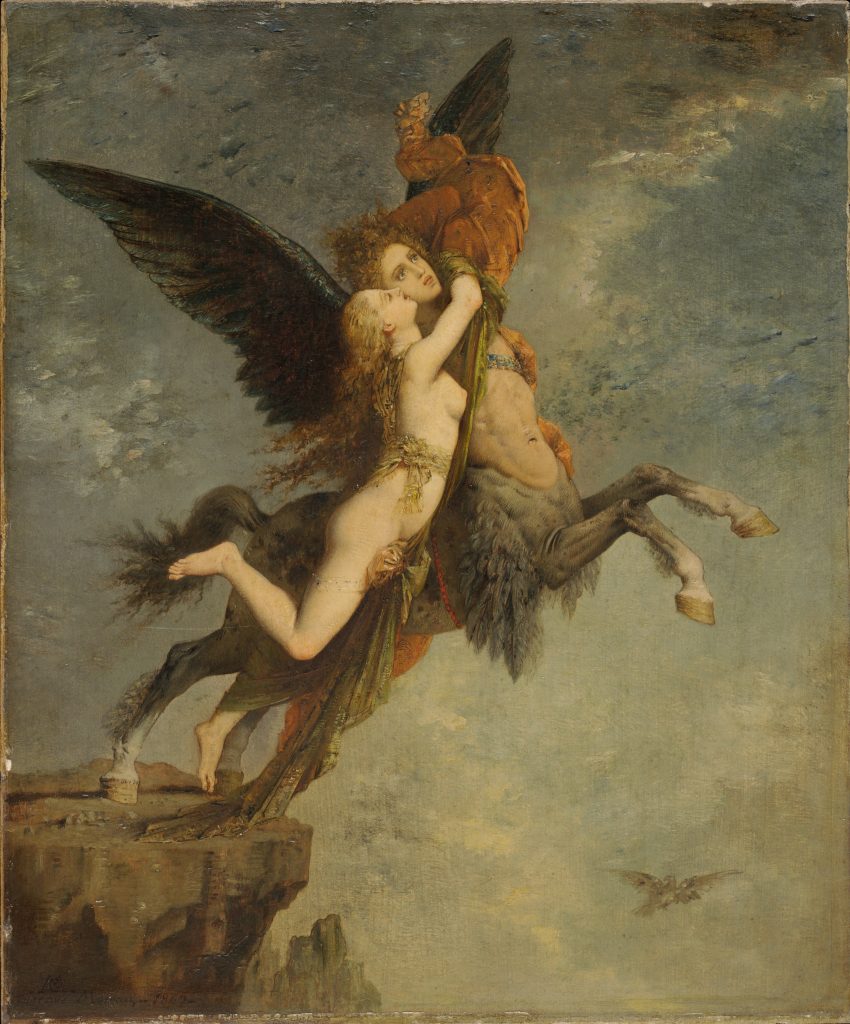Origin of myths
08.27.2018“What am I doing here?” “What’s the point of it all?” “And where are we heading?” “Am I going to die one day? And where will I go then?” The big unanswered questions are still posed today just as they were years ago by the first men who uttered them. Hence the origin of myths.
The word myth seems to have been invented in the 19th century to describe stories about the origins of the world and about mankind, in particular those of ancient civilisations such as the Assyrian civilisation (from Mesopotamia), Hebrew, Greek and Roman civilisations etc. Mythology is the study of these stories, of which only fragments remain, and which have continued to change over the course of these multi-millennial civilisations. And what can we surmise from the first mythical stories that came about during Magdalenian times, of which only a few wall frescos remain? Well, not a lot.
In other words, in our science-orientated age, disciplinary fields examining humanity’s great past consider the word myth as a crafty word for fairy story. The ancients certainly told some stories, for sure. Whereas today, with astrophysics and the string theory, things are far more logical, things are far more serious.
But if we look at the ancient Greek civilisation, whose myths were written down by Homer – finally someone to be reckoned with – they focused on maths as we do, they built the Parthenon and predicted eclipses… “It was back in pre-Socratic times that people distinguished, as Pindare said, between muthos and logos, sacred fantasies and rational discourse.” (Lucien Jerphagnon, Au bonheur des sages) With the birth of philosophy, rational discourse examined these great narratives that focused on root causes but tried to keep the allegorical dimension of myths intact. Lucien Jerphagon reminds us of a certain literary critic called Theagenes of Rhegium (5th century BC) who did this to maintain the reality of Homeric myths. Ancient historian and philosopher Paul Veyne also entitled one of his pieces of work: Do Greeks believe their myths? Certainly, but not without understanding that Apollo would not be coming to shake their hands as they exited the temple or sharing a glass of ouzo with them in the bar opposite it. Every faith has its mystery.
There has probably never been a human society without myths to explain the inexplicable, shedding light on the invisible and looking at the Cause of everything. Because they start a dialogue with the absolute and the very heart of the unresolved. They reflect humanity in a cosmic mirror and give society its collective soul. « The myth gives the finite what is missing in infinity, and what it needs from eternity. » (Lucien Jerphagnon, ibid.) The myth, by starting with a beginning, authorises a destination: something beyond this life down here. This origin is the foundation of faith and of a future that is more engaging than nothingness, the latter being no laughing matter every day. Is the origin of myths not the neocortex of the hominid since he began to talk and give it a name, even before any transcendence or reflexivity? The bud of a myth lies in the « fears, dreams and outrage rooted deep within us. » (Jacqueline de Romilly, quoted by Lucien Jerphagnon, ibid.) Its presence allows us to hope. The great transcendence of monotheistic religions has substituted primordial myths but derive, nevertheless, from the same spirit.
But a myth is not just a story. It is a living thing because of the way it is transmitted, by its evolution and by the religious beliefs that consecrate it. « Since mythical thought does not clearly fix its departure point or arrival point, it never achieves its full trajectory: there is always something more to be experienced. Like rites, myths are interminable » (Claude Levi-Strauss)
These days, the divorce in Renaissance times between science and rationality on the one hand and the sacred history of origins and the supernatural on the other hand created an irrevocable schism. Yet many great scientists have faith and are religious. There are basically two spiritual regimes, one analytical, one driven by passion. One overshadows, the other is unassuming. Both are fertile soil for the other. And that’s why when philosopher Adorno said that God was dead he was everywhere: the original myths were revoked but others abounded, led people astray, were short on fervour and religious rites. These small time myths are gathering momentum, as human beings seem divinely gifted at believing without belief; believing a little bit on the quiet, but unshakeably so.


